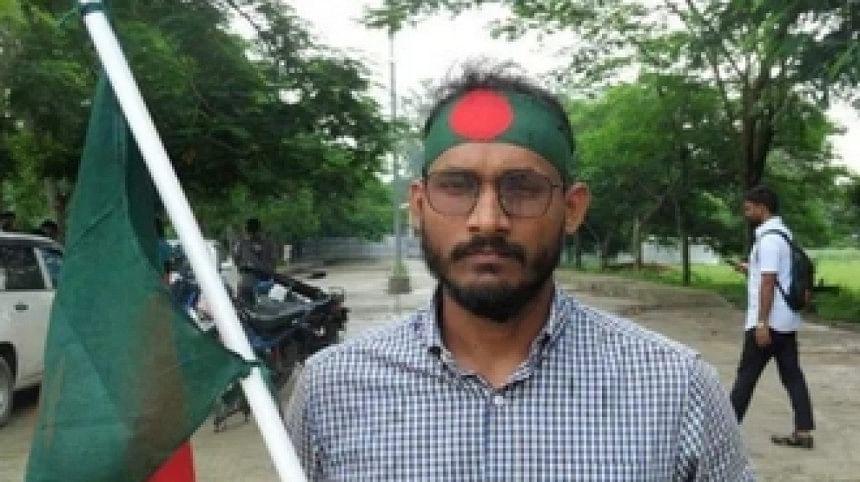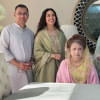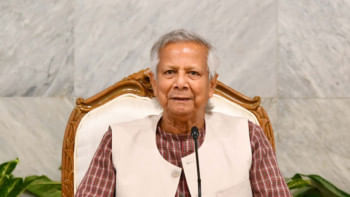Eid without Abu Sayed: A family left in mourning

This Eid, the family of Abu Sayed will observe the occasion with a profound sense of loss. Once, financial hardship plagued the family, but Sayed was always there. Now, though life may have improved materially, his absence casts a vast emptiness over his loved ones.
"Last year, Abu Sayed was here for the Eid celebration," said Sumi, his youngest sister.
Abu Sayed, a martyr of the July uprising last year, will be missing from his family's celebrations for the first time. His absence leaves a void filled with silent grief, unspoken sorrow, and an unfulfilled longing within the hearts of his parents and siblings.
Born in Jafarpur of Babanpur village, Madankhali Union, in Pirganj upazila of Rangpur, Sayed was the youngest among six brothers. His father, Mokbul Hossain, worked as a day labourer, struggling to provide for the family. Among his three sisters, the youngest, Sumi Khatun, 20, remains overwhelmed with emotions as she recalls past Eid celebrations.
"Every Eid, my brother would buy clothes and henna for my child and our elder sister's child with his tuition earnings. He would rush home and then visit my in-laws' place. It still feels like he will come back this time too," said an emotional Sumi.
"His smile, his presence -- it's as if he's still alive in our memories."
"This Eid will be unbearably painful," she added. "We used to have so little, but we shared everything with joy. Now, we may have money, but I won't have my brother to share it with."
For Mokbul Hossain, no amount of wealth or justice can ease the pain of losing his son. "Even if I were given the whole country, my heart wouldn't find peace. The damage has been done, and it can never be undone," he said.
Sayed had always saved from his modest earnings to buy a panjabi for his father and a saari for his mother during Eid. Now, memories of attending Eid prayers together bring him unbearable sorrow.
Sayed's mother, Monowara Begum, echoes the same grief.
"There is no peace in my heart. Eid will pass, but the pain will never fade as long as I live," she said, wiping away silent tears.
Abu Sayed was a student of the 12th batch in the English department of Begum Rokeya University in Rangpur and a key coordinator of the quota reform movement in Rangpur.
On July 16 last year, a violent clash erupted at Park Mor near the university between police, Chhatra League, and Jubo League on one side and protesting students on the other.
During the confrontation, Abu Sayed was shot dead by police. The next day, he was laid to rest in his village.
Footage of Sayed's public death from police bullets circulated widely in national and international media, as well as on social media, sparking massive protests across the country.
Eventually, on August 5, the Awami League government fell from power.
Though much has changed, the gap left by Sayed remains unfilled. His absence is a wound that time may never heal for his family -- a silent ache, a midnight awakening, and an unspoken grief that lingers in their hearts.
Like Abu Sayed, many families in Rangpur will miss their loved ones who died during the July uprising.

 For all latest news, follow The Daily Star's Google News channel.
For all latest news, follow The Daily Star's Google News channel. 










Comments